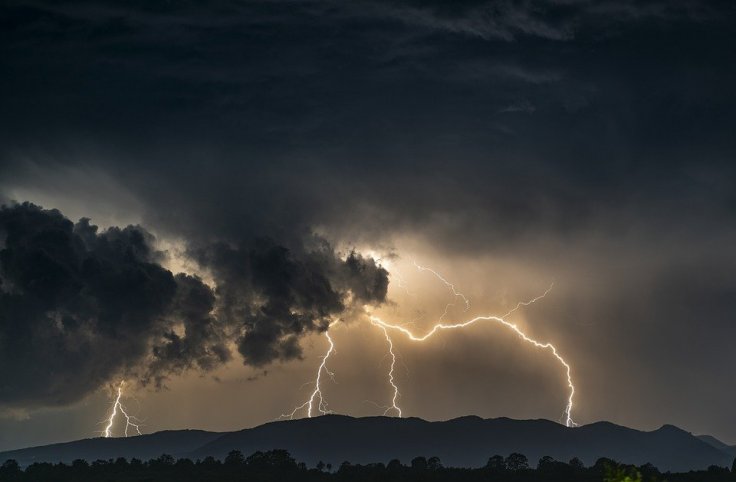A new study conducted by a team of researchers has suggested that lightning strikes may have played a crucial role in sprouting life on Earth. The study report reveals that lightning strikes may have supplied primordial Earth with enough phosphorus to support the initial emergence of life on the blue planet.
Not Just Meteorites, Lightings Also Helped Life to Form on Earth
Scientists have previously speculated that meteorites and extraterrestrial rocks had direct connections in supplying sufficient phosphorus on Earth's surface. In the ancient days of Earth's formation, most of the phosphorus on the planet was locked away in insoluble minerals. However, one mineral named schreibersit was highly reactive, and it could produce phosphorus capable of forming organic molecules.

As most of the schreibersit came to Earth from meteorites, scientists strongly believed that meteorites have brought life to earth. But the new study suggests that schreibersit is abundant in the glass-like rock formed by lightning strikes in some types of clay-rich soils.
Lightning Creates Schreibersit
Researchers made this conclusion after using state-of-the-art image techniques to determine the amount of schreibersit formed in each lightning strike. In the study report, researchers noted that lightning strikes could have produced somewhere around 110 to11,000 kilograms of phosphorus a year.
"Lightning strikes on early Earth may have provided a significant amount of reduced phosphorus. And by synthesizing the best of our knowledge of the conditions of early Earth, I think our results bear out this hypothesis," said Benjamin Hess, a researcher at Yale's Department of Earth and Planetary Sciences told AFP.
According to researchers meteor hits on Earth was decreased dramatically post the formation of the moon around 4.5 billion years ago. However, lightning strikes surpassed space rocks for phosphorus production around 3.5 billion years ago, and these bolts played a pivotal role to sprout life on the blue planet.
The research report did not completely rule out the role played by meteorites in bringing phosphorus to Earth.
"Meteor impacts around the time of the emergence of life are far less than thought a decade ago. But I don't see our work as a competition against meteorites as a source of phosphorus. The more sources, the better," added Hess.









